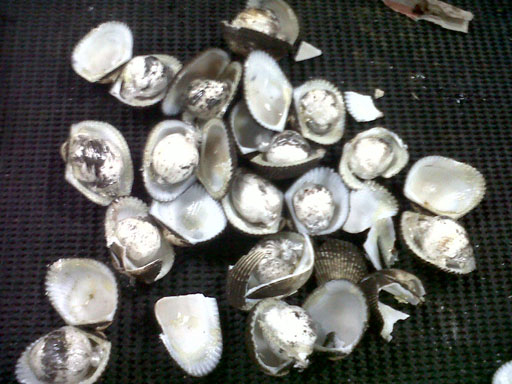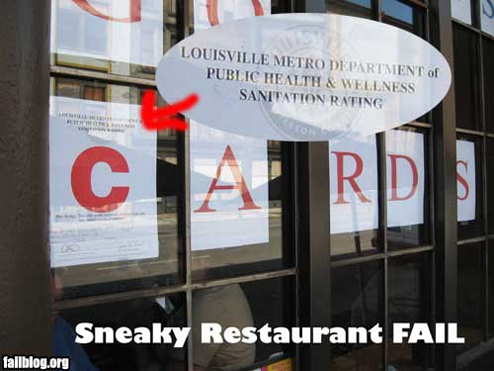The owner of a Chinatown fish market was arrested yesterday for allegedly selling dangerously dirty clams that she smuggled in on the luggage racks of passenger buses, sources told The Post.
Jin Hua Ke, 51, faces up to four years in jail if convicted of illegal commercialization of wildlife and other charges.
Tests showed high levels of fecal matter and other bacteria that made the clams unfit for human consumption, said Department of Environmental Conservation police, who are investigating the clam  scam along with Attorney General Eric Schneiderman.
scam along with Attorney General Eric Schneiderman.
“Bottom line is this: Would you want to eat something stored in the luggage cart of a bus since at least Philadelphia?” said DEC Officer Brent Wilson.
Authorities estimate that more than 5,400 pounds of freshwater clams — illegal to import and sell in New York — were trucked from Southern states and delivered to the New Lin Sichuan Fish Market, at 30 Market St., over six months.
Packaged in burlap, about a dozen packages would arrive on each bus Mondays and Tuesdays, according to local shopkeepers.

.jpg) It’s not a new concept; the big chain restaurant and grocery stores have been using outside consultants or their own people to ensure their food offerings produced and sold in a safe and hygienic manner. Government inspection sets a minimal standard that the best places strive to exceed – and no one wants to be written up in the local paper or have to display a lousy inspection result because of mistakes that could have been prevented.
It’s not a new concept; the big chain restaurant and grocery stores have been using outside consultants or their own people to ensure their food offerings produced and sold in a safe and hygienic manner. Government inspection sets a minimal standard that the best places strive to exceed – and no one wants to be written up in the local paper or have to display a lousy inspection result because of mistakes that could have been prevented..jpg) The number of points, and the severity of the penalties, vary with the offense; according to the department’s guide, a “woman in gray slacks carrying poodle on service line” is much less serious than a “woman in gray slacks carrying poodle on service line, man with mustache with a parrot on shoulder at the salad bar, a child with a rabbit at the dining table and a woman with a cat on a leash at coffee bar.”
The number of points, and the severity of the penalties, vary with the offense; according to the department’s guide, a “woman in gray slacks carrying poodle on service line” is much less serious than a “woman in gray slacks carrying poodle on service line, man with mustache with a parrot on shoulder at the salad bar, a child with a rabbit at the dining table and a woman with a cat on a leash at coffee bar.” The job is easier in New York, because,
The job is easier in New York, because,